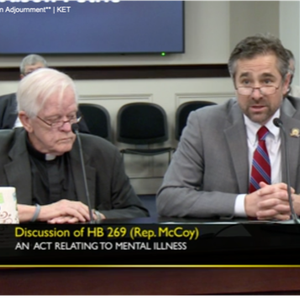
Delaware Attorney General Matt Denn (pictured) announced on August 15 that his office will not appeal the Delaware Supreme Court’s August 2 decision in Benjamin Rauf v. State of Delaware, which struck down the state’s death penalty statute. In Rauf, the court found that Delaware’s capital sentencing scheme violated the Sixth Amendment, as interpreted by the U.S. Supreme Court in Hurst v. Florida, by granting judges, rather than juries, the ultimate power to decide whether the prosecution had proven all facts necessary to impose the death penalty. Delaware’s statute had not required a unanimous jury determination of all aggravating circumstances that were considered in sentencing a defendant to death or a unanimous jury finding that those reasons for death outweighed mitigating circumstances. The Rauf decision intensifies the national spotlight on Alabama and Florida as the only states that still permit judges to impose death sentences after non-unanimous jury recommendations for death and on Alabama as the only remaining state to permit a judge to override a jury’s life verdict. The statement of the attorney general’s office said Denn “has concluded that even if the United States Supreme Court reversed the opinion on Federal Constitutional grounds, … the Delaware Supreme Court would ultimately invalidate Delaware’s current death penalty statute based on the Constitution of the State of Delaware.” Litigating those issues, he said, “would likely take years” and “would likely not only bring about the same result, but would also deny the families of victims sentencing finality.” The statement indicated that state prosecutors would challenge the application of Rauf to the thirteen prisoners currently on Delaware’s death row, leaving their status uncertain. For future cases, legislative action is now the only route to reinstating the death penalty in Delaware. Such action seems unlikely, given that it must be approved by both houses of the legislature and by the Governor. However, death penalty abolition bills passed the state Senate in 2013 and 2015, and narrowly failed in the House earlier this year, and Governor Jack Markell has expressed support for abolishing the death penalty and “applaud[ed] the Supreme Court’s finding that the state’s death penalty law is unconstitutional.”
(J. Masulli Reyes and M. Albright, “AG won’t appeal Delaware death penalty ruling,” The News Journal, August 15, 2016; Press Release, “Attorney General Will Not Appeal To U.S. Supreme Court On Death Penalty,” Delaware Department of Justice, August 15, 2016.) See Sentencing and Recent Legislation. Read DPIC Executive Director Robert Dunham’s analysis of the national impact of Rauf.
Recent Legislative Activity
Jan 12, 2024

State Legislative Roundup: New Legislation on the Death Penalty
Recent Legislative Activity
Nov 02, 2023

Under Recent State Legislation, Courts in Ohio and Kentucky Rule Four Men Ineligible for Execution Due to Serious Mental Illness
Recent Legislative Activity
Sep 12, 2023
